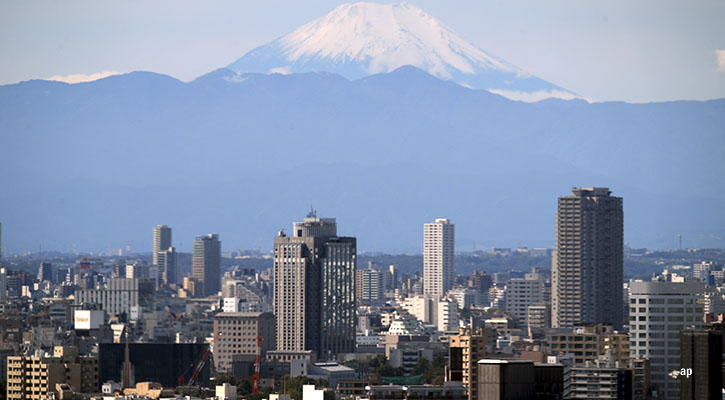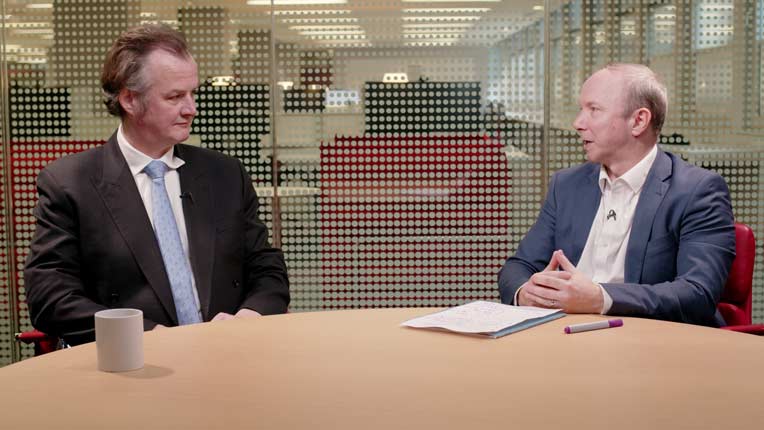
With Japan's stock market hitting record highs this month, the focus has now turned to the country's negative interest rate policy.
The Bank of Japan has ended a long period of speculation by finally raising interest rates for the first time in 17 years. The move comes as pressure grows on Western central banks to cut policy rates after a series of aggressive rate hikes.
The short-term policy rate was raised from -0.1% to 0% to 0.1%, not a massive change in technical terms, but a symbolic one as it marks the end of the era of negative rates. The controversial “yield curve control” programme was also ended, as well as the purchase of ETFs and real estate investment trusts by the central bank.
Japan Gets Inflation Too
After many years of battling deflation, Japan’s inflation is now trending above the 2% target, helped by some of the first pay rises Japanese workers have received in decades. Domestic companies have also been able to pass on cost increases to consumers after a long period of stable and falling prices.
After the Bank of Japan’s expected move, Japan stock market indices rose modestly, following a period of recent record highs. The Morningstar Japan index has risen nearly 9% in the year to date and is up 124% in 10 years.
Despite the interest rate increase, the yen actually fell against major currencies, with the USD/JPY rate moving above ¥150 and GBP/JPY rising above ¥190. Swissquote Bank senior analyst Ipek Ozkardeskaya published a note this morning titled “where are the yen bulls?”. The long-awaited BoJ move was supposed to reverse the yen’s fortunes – and certainly many currency traders back the idea of a yen bounce this year – but today it hasn’t had the expected impact on the currency. “The price action suggests a ‘one and done’ action from the BoJ,” said Ozkardeskaya.
“Note that today’s decision was supposed to send the yen on a rising path. At this point, I don’t see what would make long the yen the best trade of the year.”
Nikko Asset Management global strategist and managing director Naomi Fink reinforced the idea that markets are not expecting more hikes from the BoJ, which could explain some of the currency weakness.
"We are now in wait-and-see mode, particularly given ‘uncertainty’ coming not only from Japan, but also from overseas economies," she said.
"As such, there remains no immediate catalyst for BOJ to continue hiking – evidence of real income growth, ongoing productivity-enhancing investment and positive sentiment from corporates, recovery in domestic consumption remain to be seen before any next move, given reflation is happening in a manner conducive to withdrawing stimulus very deliberately."
Shinzo Abe's Economic Legacy
Howe Chung Wan, managing director and head of Asian fixed income, at Principal Asset Management, thinks the interest rate change has been a long time in coming, and represents the fruits of the changes initiated by the late prime minister Shinzo Abe known as “Abenomics”.
“I believe Japan has been building to this moment – it’s been more than a decade since ‘Abenomics’ was introduced to combat two decades of a deflationary environment.
“Now, this comprehensive policy package covering monetary, fiscal, and social, labour, and economic reforms, has created a ripe environment for Japan to begin to recover. It’s important to remember, however, that a large portion of the working population has never experienced a high-growth Japan, so confidence will take time to build.”
Japan's (Slow) Corporate Governance Revolution
One of Abe’s key reforms was to corporate governance, changes which expert say have driven some of the stock market gains of the last few years. Some overseas investors have lost patience with the many false dawns in recent years. Japan’s stock market rally has lacked an obvious narrative hook such as the current AI boom in the United States. But Morningstar’s Leslie Norton recently argued that the elevated stock market values can be sustained.
The prevailing narrative in the high inflation era is that Japan is somehow immune from global price pressures, that its economy is unique and on a different track to the West. Discussing the interest rate hike, David Mitchinson, fund manager at Zennor Asset Management, argues that the interrelated nature of capital markets means the BoJ’s move will have a knock-on effect elsewhere:
“This is a structural change that is very important for Japan and for global capital market flows. The US, for instance, has been able to rely on large Japanese surplus savings to fund the deficit. With rates in Japan now rising and with elevated hedging costs this is increasingly unattractive. Will these flows reverse? What will the impact be on US rates?”
The Federal Reserve meets this week, along with the Bank of England, and both are expected to hold interest rates.


























